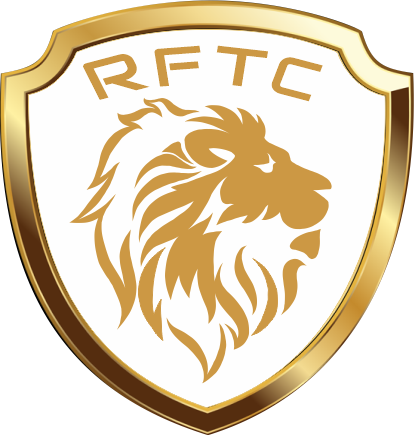Programs
Call 866.993.4778


Our Programs
Our specialized programs and modalities are thoughtfully designed to address the unique challenges faced by First Responders in their journey to recovery. With a focus on personalized care, evidence-based treatments, and compassionate support, our programs provide a safe haven where First Responders can heal and rediscover their strength. From trauma-focused therapy to relapse prevention strategies, our comprehensive approach empowers individuals to reclaim their lives and build a strong foundation for lasting sobriety. At Recovery First, we are committed to supporting the well-being of those who serve and making a meaningful difference in their lives.
Our Therapies
... our dedicated treatment team strives to be at the forefront of the industry. We offer a comprehensive range of the latest evidence-based treatment modalities, as well as time-tested therapies that have a proven track record of success.
EMDR helps clients recover from traumatic experiences that result in symptoms and distress. Utilizing "dual stimulation" exercises to discuss past trauma while simultaneously engaging other parts of the brain through bilateral eye movements, tones, or taps, EMDR helps heal the brain's information processing system and promotes emotional stability and symptom reduction. EMDR's benefits are so empirically effective that it has been officially approved by the American Psychological Association as a treatment for post-traumatic stress disorder (PTSD) and other trauma conditions.
Trauma therapy is specialized psychotherapy aimed at helping individuals heal from the emotional effects of traumatic experiences. It focuses on reducing distressing symptoms and building resilience through evidence-based techniques and a supportive environment.
Our trauma-focused therapy approach addresses the effects of past traumatic experiences, guiding first responders toward healthier coping mechanisms.
Our trauma-focused therapy approach addresses the effects of past traumatic experiences, guiding first responders toward healthier coping mechanisms.
The Trauma Egg is a visual representation often used in trauma therapy to help individuals understand and process their traumatic experiences. It consists of three layers: the outer shell represents the coping strategies used to protect oneself, the middle layer holds the traumatic memories and emotions, and the innermost core symbolizes the deep-seated beliefs and feelings resulting from the trauma. By exploring each layer, individuals can gain insight into their trauma's impact and work towards healing and resolution.
At Recovery First, we utilize The Trauma Egg therapeutic technique to help first responders explore and process various aspects of their traumatic experiences.
At Recovery First, we utilize The Trauma Egg therapeutic technique to help first responders explore and process various aspects of their traumatic experiences.
CBT encourages clients to question and examine recurring thoughts in order to phase out those that are negative and unhealthy. CBT can be applied in the treatment of many different types of problematic substance use. People treated with CBT techniques learn to recognize and change their maladaptive behaviors. CBT can help people with coping skills, identifying risky situations and what to do about them, and preventing relapse. This approach is helpful because it can be paired with other techniques. The skills learned through CBT continue to be of benefit long after the initial therapy, and it can be used to treat co-occurring mental and physical health disorders as well.
DBT teaches clients how to regulate their emotions to reduce the self-destructive behaviors that drive them from extreme, intense emotions. DBT focuses on 4 skill sets that include distress tolerance, emotion regulation, mindfulness, and interpersonal effectiveness.
Through. Individual therapy sessions and group education, dialectical behavioral therapy promotes skill-building in four key areas.
1. Mindfulness - Accepting and being present at the moment.
2. Dispress Tolerance - coping with negative feelings rather than seeking to escape them.
3. Emotion Regulation - Learning to manage and change intense, problematic emotions.
4. Interpersonal Effectiveness - Becoming more assertive and prioritizing self-respect.
DBT works to reduce cravings, helps patients avoid situations or opportunities to relapse, assists in giving up actions that reinforce substance use and teaches healthy coping skills. Outcomes data indicated that DBT successfully treats addiction and various mental health diagnoses.
Through. Individual therapy sessions and group education, dialectical behavioral therapy promotes skill-building in four key areas.
1. Mindfulness - Accepting and being present at the moment.
2. Dispress Tolerance - coping with negative feelings rather than seeking to escape them.
3. Emotion Regulation - Learning to manage and change intense, problematic emotions.
4. Interpersonal Effectiveness - Becoming more assertive and prioritizing self-respect.
DBT works to reduce cravings, helps patients avoid situations or opportunities to relapse, assists in giving up actions that reinforce substance use and teaches healthy coping skills. Outcomes data indicated that DBT successfully treats addiction and various mental health diagnoses.
MI is a drug addiction treatment method of resolving ambivalence in recovering individuals to allow them to embrace their treatment efforts to best change their problematic substance use behavior. The purpose is to strengthen the client's own motivation for and commitment to change in a manner that is consistent with said client's values. Therefore, rather than imposing or forcing particular changes, we "meet the client where the client is" and help her/him move toward his/her goals by drawing out and building his/her readiness to change. One benefit of MI is that, despite being facilitated by a therapist, those in recovery develop their own motivation and a plan for change over the course of several sessions, which can provide them with more of a sense of control over the course of their treatment.
Patients may partake in therapy guided by a therapist in a 1 on 1 format, with a group in a safe, peer-supported atmosphere, and/or with participation from family or anyone significant in the patient's life.
When most people picture addiction treatment, they think of traditional talk therapy: a series of conversations spread over several sessions. However, hands-on learning can also be a powerful tool for those in early recovery. Experiential therapy is effective for treating substance use disorders because it deeply engages the patient's emotions. Participants explore subconscious thoughts and feelings through guided imagery, role-playing, and other activities. People who cannot articulate complex emotions (or convey the details of their trauma) may begin processing them.
Examples of experiential therapy include:
1. Art therapy
2. Music therapy
3. Equine therapy and other animal-assisted therapies
4. Creative writing or poetry therapy
5. Adventure therapy (wilderness expeditions, rope courses, ziplining)
6. Play therapy
7. Drama therapy (psychodrama)
8. Sound Bath
9. Flotation therapy (Deprivation therapy)
10. Red light therapy
11. Breathwork
12. Massage therapy
13. Water yoga
New and exciting therapies are emerging rapidly and we'll be among the first to offer them!
Examples of experiential therapy include:
1. Art therapy
2. Music therapy
3. Equine therapy and other animal-assisted therapies
4. Creative writing or poetry therapy
5. Adventure therapy (wilderness expeditions, rope courses, ziplining)
6. Play therapy
7. Drama therapy (psychodrama)
8. Sound Bath
9. Flotation therapy (Deprivation therapy)
10. Red light therapy
11. Breathwork
12. Massage therapy
13. Water yoga
New and exciting therapies are emerging rapidly and we'll be among the first to offer them!
REBT helps clients identify, challenge, and replace destructive thoughts and convictions with healthier, adaptive thoughts. Empirical studies demonstrate that this process incites emotional well-being and goal achievement. It helps patients understand their thoughts and then helps to develop better habits and thinking in more positive and rational ways and fain healthier emotions. The base for REBT is the idea that rational thinking comes from within; external situations do not give one happiness or unhappiness.
Seeking safety is a present-focused therapy that helps clients attain safety from trauma (including PTSD) and substance misuse by emphasizing coping skills, grounding techniques, and education. This highly effective, research-based therapy has several key principles, which, to name a few, include: helping clients attain safety in their thinking, emotions, behaviors, and relationships, integrated treatment of substance conditions and trauma, and focusing on ideals to counteract the loss of ideals that is experienced in both trauma and substance abuse.
Anger management is a structured therapeutic process aimed at helping individuals understand, cope with, and express their anger in healthy and constructive ways. It involves learning techniques to recognize triggers, manage intense emotions, and respond to challenging situations with increased self-awareness and self-control. Anger management helps individuals develop healthier communication and conflict resolution skills, improving relationships and more balanced emotional well-being.
Given the nature of their work, first responders often deal with intense emotions, including anger. Our anger management therapy helps them develop healthier ways to express and cope with these feelings.
Given the nature of their work, first responders often deal with intense emotions, including anger. Our anger management therapy helps them develop healthier ways to express and cope with these feelings.

Holistic Treatment
Holistic modalities encompass a diverse range of evidence-based therapies, alternative practices, and wellness programs, working synergistically to nurture individuals' overall well-being and support their journey towards lasting recovery.
Our equine-assisted therapy involves interacting with horses to promote emotional healing and personal growth, assisting first responders in developing trust, communication, and emotional regulation skills.
Meditation is a practice that involves training the mind to focus on the present moment, promoting inner calmness, and enhancing overall well-being. Through various techniques, such as mindful breathing or guided visualization, individuals can cultivate a sense of awareness, reducing stress and anxiety. Regular meditation can improve mental clarity, emotional resilience, and foster a deeper connection with oneself. As a powerful tool for relaxation and self-discovery, meditation is embraced worldwide as a means to find balance and inner peace amid life's challenges.
Yoga is a holistic practice that combines physical postures, breath control, meditation, and relaxation techniques to promote overall health and well-being. Originating from ancient India, yoga aims to harmonize the mind, body, and spirit, fostering balance and inner peace. Through regular practice, individuals can improve flexibility, strength, and balance, while also reducing stress and anxiety. Yoga encourages self-awareness and mindfulness, allowing practitioners to connect with their inner selves and cultivate a sense of serenity and contentment. With its wide-ranging benefits, yoga is embraced worldwide as a transformative practice for enhancing physical, mental, and emotional health.
Tai Chi is an ancient Chinese martial art and mind-body practice that focuses on slow, flowing movements and deep, controlled breathing. Rooted in traditional Chinese medicine and philosophy, Tai Chi aims to cultivate inner peace, balance, and harmony within the body and mind. Through gentle and deliberate movements, practitioners improve their flexibility, balance, and coordination while reducing stress and tension. Often described as "meditation in motion," Tai Chi encourages a state of mindfulness, helping individuals cultivate a heightened sense of awareness and relaxation. It is suitable for people of all ages and fitness levels, offering a gentle yet profound way to enhance physical and mental well-being.
A sound bath is a meditative experience where those in attendance are “bathed” in sound waves. These waves are produced by various sources, including healing instruments such as gongs, singing bowls, percussion, chimes, rattles, tuning forks, and even the human voice itself.
The music doesn’t have a catchy melody or rhythm like you’d experience at a rock concert or symphony but, instead, is a carefully selected wash of instrument and voice with notable resonance and overtones.
“The intention is really to change and help balance the energy of the participants. During a sound bath, you don’t want to hook into a melody. You don’t want to repeat things because you don’t want the brain to recognize a repeated beat. Instead, you want participants to release, and you want the brain to let go,”
The music doesn’t have a catchy melody or rhythm like you’d experience at a rock concert or symphony but, instead, is a carefully selected wash of instrument and voice with notable resonance and overtones.
“The intention is really to change and help balance the energy of the participants. During a sound bath, you don’t want to hook into a melody. You don’t want to repeat things because you don’t want the brain to recognize a repeated beat. Instead, you want participants to release, and you want the brain to let go,”
Matrix Model
The Matrix Model employs a combination of various therapeutic techniques and was originally developed for the treatment of individuals with stimulant addictions. Against this backdrop of various techniques, therapists focus on rewarding good behaviors and teaching patients to believe in themselves, self-esteem, dignity, and self-worth. The MAtrix Mode is mostly focused on "relapse prevention, family and group therapies, drug education, and self-help participation."
Family Treatment Approach
Family involvement is key to the resolution of any chronic issue, and addiction is no exception. Because everyone close to the patient experiences the harmful effects of substance use, the primary challenge of rehabilitation is broadening the treatment focus from the individual to the entire family.
In family therapy, a counselor or therapist facilitates discussions and problem-solving sessions with the entire or part of the client's family system, as well as with the individual in treatment. In many cases, an educational component is included so that spouses, siblings, parents, and children better understand the disease model of addiction and learn skills to cope with emotions related to their loved one addictive behavior and the consequences caused by them.
In family therapy, a counselor or therapist facilitates discussions and problem-solving sessions with the entire or part of the client's family system, as well as with the individual in treatment. In many cases, an educational component is included so that spouses, siblings, parents, and children better understand the disease model of addiction and learn skills to cope with emotions related to their loved one addictive behavior and the consequences caused by them.
12-Step Facilitation
12-step facilitation therapy promotes continued abstinence by engaging people in recovery with 12-step peer support groups. Meetings are hosted by several 12-step fellowship varieties, including Alcoholics Anonymus and Narcotics Anonymus.
Relapse Prevention
Our program focus on preventing relapse, but the term “relapse prevention” refers to a specific intervention. A skills-based, cognitive-behavioral approach, relapse prevention seeks to identify potentially triggering situations and provide tools to overcome them.
Relapse prevention strategies include:
Relapse prevention strategies include:
Challenging positive expectations surrounding substance use.
Developing coping skills that address potential relapse triggers.
Learning how to say “no” in a clear, assertive way.
Planning for emergencies:sudden, intense urges and cravings.
Reinforcing confidence in the ability to abstain from drug and alcohol use. Participating in the cognitive restructuring of the thinking traps and cognitive distortions.

Dual Diagnosis
At Recovery First, we understand that First Responders may face both addiction and co-occurring mental health challenges. Our comprehensive methods enable us to recognize and address dual diagnoses by:
Thoroughly assessing each individual's unique situation
Identifying the presence of substance use disorders and underlying mental health conditions
Providing specialized care for co-occurring disorders
Combining addiction treatment with holistic approaches
Empowering First Responders to achieve lasting sobriety and improved mental health
We firmly believe in treating the whole person, addressing all aspects of their well-being, and providing tailored programs and compassionate support. With our integrated approach, we equip First Responders with the tools and resources needed to achieve a brighter and healthier future.
